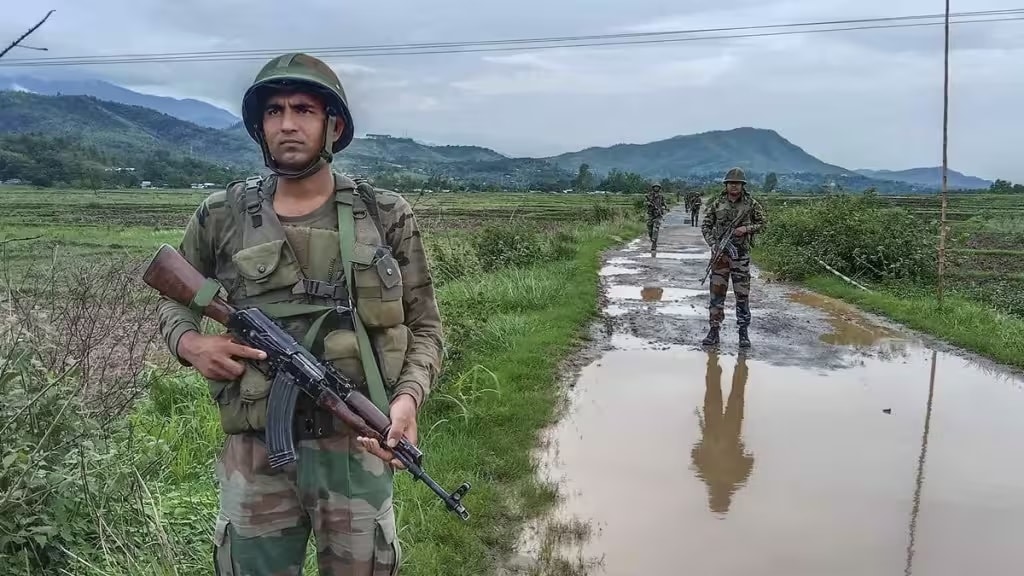The Home Ministry on Thursday reimposed declared six areas in Manipur as “disturbed areas”, bringing them under the Armed Forces (Special Powers) Act (AFSPA), 1958. These areas include violence-hit Jiribam.
The Ministry of Home Affairs issued the notification, citing the “volatile” situation in Manipur and instances of “active participation of insurgent groups in heinous acts of violence”, Indian Express reported.
The MHA further stated that the imposition of the Disturbed Areas status in these six areas was found warranted to “carry out well-coordinated operations by the security forces to maintain the security situation and contain the activities of insurgent groups in these areas”.
Also Read: JMM-led coalition has turned infiltrators into vote banks, says Amit Shah in Jharkhand poll rally
It also stated that “intermittent firing in violence-prone areas continues in the fringe areas of Bishnupur-Churachandpur, Imphal East-Kangpokpi-Imphal West and Jiribam districts”.
The decision to declare more areas in Manipur as “disturbed” under AFSPA comes just after the Home Ministry deployed 20 additional paramilitary units, or roughly 2,500 personnel, to the state.
The Disturbed Areas status, which was in place for all of Manipur except 19 police stations in the Meitei-dominated valley areas from where it was withdrawn between April 2022 and April 2023, has now been extended to the jurisdictions of Sekmai and Lamsang police stations in Imphal West, Lamlai in Imphal East, Moirang in Bishnupur, Leimakhong in Kangpokpi and Jiribam police station in Jiribam, IE reported.
The move follows fresh civilian attacks and renewed clashes between security forces and militants. These escalations highlight the ongoing unrest in Manipur, where ethnic violence has claimed more than 230 lives over the past 18 months.
What is AFSPA?
The AFSPA provides immunity to armed forces personnel – it disallows prosecution of persons acting under the Act except with the sanction of the Central government. It empowers an officer of the armed forces to “fire upon or otherwise use force, even to the causing of death” against “any person who is acting in contravention of any law or order” if they are of the opinion that it is necessary.
AFSPA grants the armed forces authority to maintain order in disturbed areas. It allows security forces to arrest suspects, conduct searches, and use lethal force without warrants, with immunity from prosecution.


